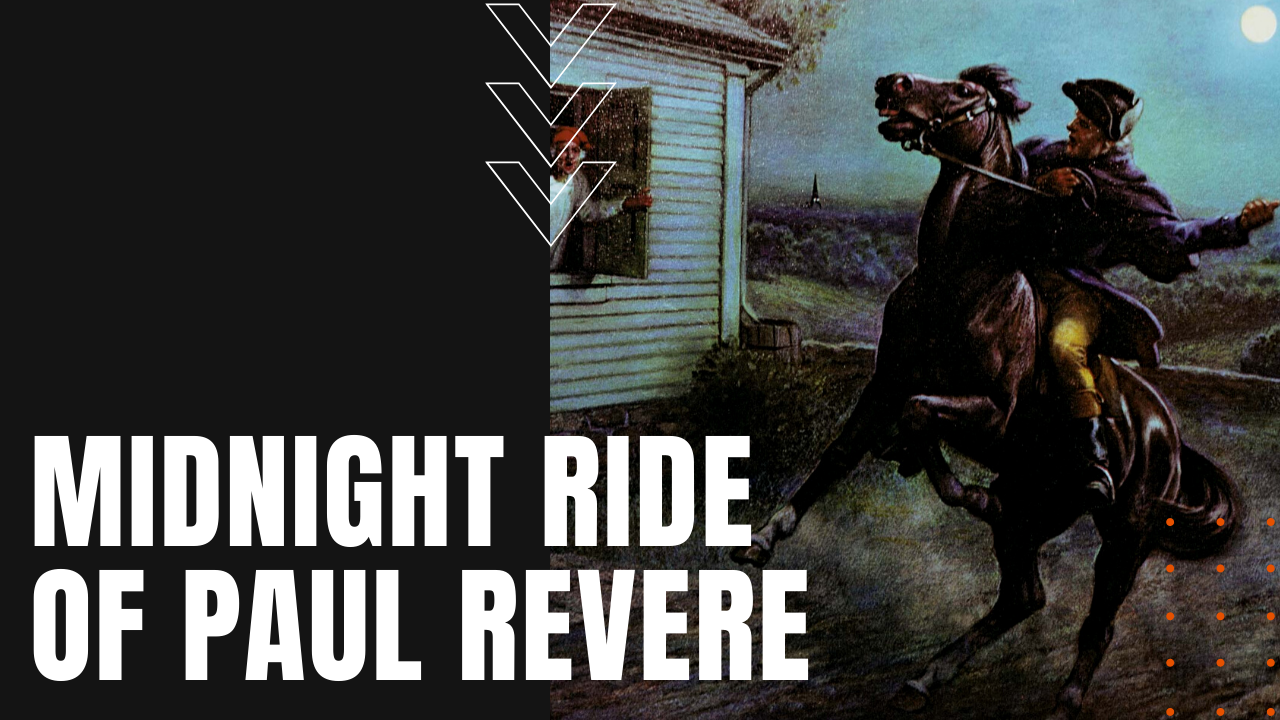Midnight Ride of Paul Revere

In June of 1774, King George the 3rd shut down Boston Harbor until the colonists paid for the tea they dumped in protest, followed by Parliament’s proclamation that the colony of Massachusetts was in a state of open rebellion.
When colonial physician and Patriot Joseph Warren learned from a friend in the British high command that British troops were ordered to seize the Patriot’s largest cache of military supplies in Concord, late in the evening of April 18th, 1775, two lanterns were lit by John Pulling in the steeple of Boston’s Old North Church—the highest point in the city—later memorialized by American poet Henry Wadsworth Longfellow, who wrote:
“One, if by land, and two, if by sea; And I on the opposite shore will be, Ready to ride and spread the alarm Through every Middlesex village and farm, For the Country folk to be up and to arm.”
Henry Wadsworth Longfellow
When was the Midnight Ride of Paul Revere?
On April 18th, 1775, Warren dispatched Paul Revere and William Dawes to spread the news in advance of a 700-man British column on the move, both men taking separate routes in case one or the other was captured.
Revere crossed the Charles River by rowboat, slipping past the British warship HMS Somerset, before riding from Charlestown to Lexington in an effort to spread the news to nearly every household along his route. During his night ride, an additional 40 Patriots joined in Revere’s courageous undertaking, spreading the news to nearly every household in Middlesex County.
Dawes, on the other hand, traveled along the Boston Neck peninsula, meeting up in Lexington with Revere and Patriot leaders Samuel Adams and John Hancock before setting out with a third rider, Samuel Prescott—a doctor who happened to be in Lexington “returning from a lady friend’s house at the awkward hour of 1 a.m.”
Revere Captured, Revolutionary War Commences
During their ride out to Concord, the trio again warned the Sons of Liberty about the British advance on Lexington and Concord. Before the night was over, Revere was captured by a British patrol, while Dawes was thrown from his horse and forced to walk back to Lexington on foot.
The following day, British Redcoats and colonial Minutemen would take up arms at the Battles of Lexington and Concord, marking the beginning of the Revolutionary War, at the same time making the midnight rides of Paul Revere and William Dawes, an important moment in the Patriots’ push for independence.
